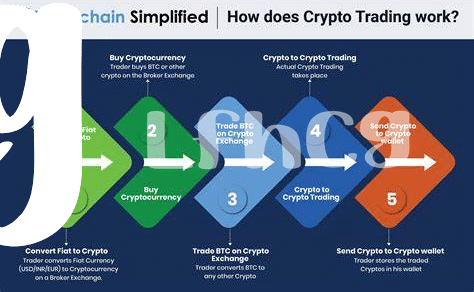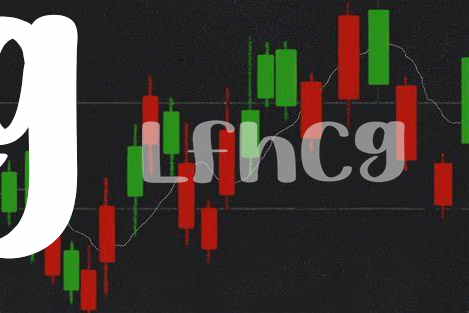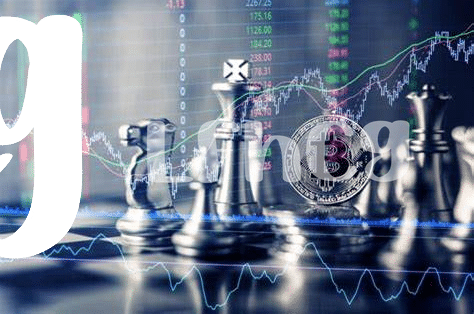🌍 Blockchain: Far More Than Digital Cash

When most people hear about blockchain, they immediately think of digital money like Bitcoin. Yet, this technology is a vast ocean with numerous treasures hidden beneath its surface, far beyond the realm of digital currency. Imagine a giant ledger, but instead of tracking just money, it securely records all sorts of information — from property rights to who made your t-shirt. This digital ledger is special because it’s spread across countless computers around the world, making it nearly impossible to hack or tamper with. This makes blockchain a superhero in the world of tech, offering a level of security we’ve never seen before. Its potential doesn’t stop at finance; it’s peeking into every corner of our lives, promising a future where we can share information with the assurance that it’s safe, sound, and exactly as it should be.
| Aspect | Description |
|---|---|
| Security | Highly secure due to decentralization and encryption |
| Applications | Beyond finance, impacting industries like supply chain, healthcare, and more |
| Potential | Revolutionizing data sharing and protection across the globe |
🔗 Understanding How Blockchain Keeps Data Safe
Imagine a world where your personal information, from financial transactions to your digital identity, is secured not by a single entity but an entire network of computers. That’s the core idea behind blockchain. This technology acts like a shared ledger, yet it’s incredibly tough for hackers to mess with. Each “block” of information is linked to the one before and after it, making the whole chain super secure. Plus, every piece of data is encrypted — think of it as being locked in a digital vault that only the right key can open.
But the real magic happens with how blockchain verifies information. It uses a consensus among all participants in the network to approve any new entries into the ledger. This means if someone tries to add something fishy, the system spots it and says “nope”. It’s a bit like having a neighborhood watch program, but for your digital data. This decentralization not just spreads out the data, making it harder to compromise, but it also means no single party has control over the entire database, giving users a level of security and autonomy rare in our current digital world. To understand more about how blockchain technology is empowering people beyond traditional banking, check out this insightful article: https://wikicrypto.news/bitcoin-microloans-empowering-entrepreneurs-in-developing-nations.
💡 Blockchain’s Role in Revolutionizing Industries

Imagine a world where every industry is transformed, making operations smoother, more efficient, and incredibly transparent. That’s the power of blockchain technology, moving far beyond its roots in cryptocurrency. From healthcare, where patient records can be securely and seamlessly shared among professionals, to supply chains that track the journey of products from manufacture to your doorstep with unbreakable accuracy, blockchain is the silent revolutionizer. 🌐✨ In agriculture, for example, it helps in verifying the authenticity of organic products, offering unparalleled traceability. Meanwhile, in the arts and entertainment sector, creators regain control over their work, ensuring they’re fairly compensated. This digital marvel is redefining trust in business transactions, proving that it’s not just an IT buzzword but a groundbreaking tool paving the way for a transparent, accountable, and efficient future across all sectors. 🚀🔍
🚀 the Rise of Smart Contracts and Dapps

Imagine a world where agreements and applications not only smarten up but also work like magic without human interference. This may sound like fantasy, but it is the reality we’re inching towards with the emergence of smart contracts and decentralized applications (Dapps). These are not just fancy tech buzzwords but incredible tools reshaping how we interact with digital services. Smart contracts are like vending machines for any kind of transaction you can think of – drop in your requirements, and out comes your agreement, sealed, delivered, and stored securely on the blockchain. This technology promises to automate and simplify complex processes, cutting out the middlemen and making transactions more transparent and efficient.
On the other hand, Dapps take this concept further by building entire applications that run on this trustless infrastructure. From games that let you own and trade virtual assets, to platforms that could change the way we vote, Dapps are opening up a world of possibilities that go far beyond basic transactions. They represent an evolution in how applications are built and operated, offering a glimpse into a future where decentralization is key. Moreover, for those interested in bitcoin and financial inclusion and the blockchain, the expansion into smart contracts and Dapps highlights the technology’s vast potential beyond just being a digital currency. Through these advances, we’re not only witnessing a shift in digital interactions but also planting the seeds for a more secure, transparent, and equitable digital world.
🌱 the Environmental Impact of Blockchain Technology
When we think about the digital world, it’s easy to forget it has a physical footprint. Blockchain, the technology keeping our online transactions secure, is no exception. At its heart, blockchain is like a digital ledger, but instead of being in one place, it’s spread out across thousands of computers around the world. This setup makes it incredibly secure, but also means it uses a lot of energy. Each transaction, or block added to the chain, requires complex calculations, which in turn demand significant electrical power. This has raised concerns about its environmental impact, given the global push towards greener, more sustainable technologies. Efforts are underway to make blockchain more energy-efficient, such as developing new ways to verify transactions that require less computing power. The goal is to ensure that this revolutionary technology contributes to our digital future without compromising our planet’s health.
| Aspect | Impact |
|---|---|
| Energy Consumption | High due to complex calculations |
| Efforts for Improvement | Developing energy-efficient transaction verification methods |
| Goal | Harmonize technological advancement and environmental sustainability |
💼 How Blockchain Is Shaping the Future of Work

In the bustling world of technology, an unseen revolution is reshaping how we work, thanks to the wonders of blockchain. This isn’t just about folks trading digital currency from their couches; it’s about transforming the backbone of how businesses operate and how projects are managed across the globe. Imagine a workspace where every transaction, contract, and employment agreement is transparent, secure, and immutable—meaning once something is decided, it can’t be tampered with. This shift towards a blockchain-integrated work environment promises efficiency like never before, significantly reducing the costs and time associated with traditional intermediaries. Jobs across sectors are evolving, requiring new skills as blockchain applications, from tracking the journey of a coffee bean to ensuring the authenticity of luxury goods, become the norm. Moreover, with concepts like Decentralized Autonomous Organizations (DAOs), decision-making processes are being democratized, allowing collective management and direct participation from employees or members, all supported by blockchain. This isn’t a distant future scenario; it’s happening now, opening new avenues for employment and ways of working that were previously unthinkable. Interesting to see how this technology is creating opportunities beyond its nascent stage? Dive into how bitcoin is making a mark and the promising intersection of blockchain and renewable energy, showcasing the vast potential of blockchain beyond the confines of digital finance. The journey into the blockchain-enabled workforce is just beginning, and it’s set to radically alter our professional landscapes in thrilling ways. 🚀🌍💡
